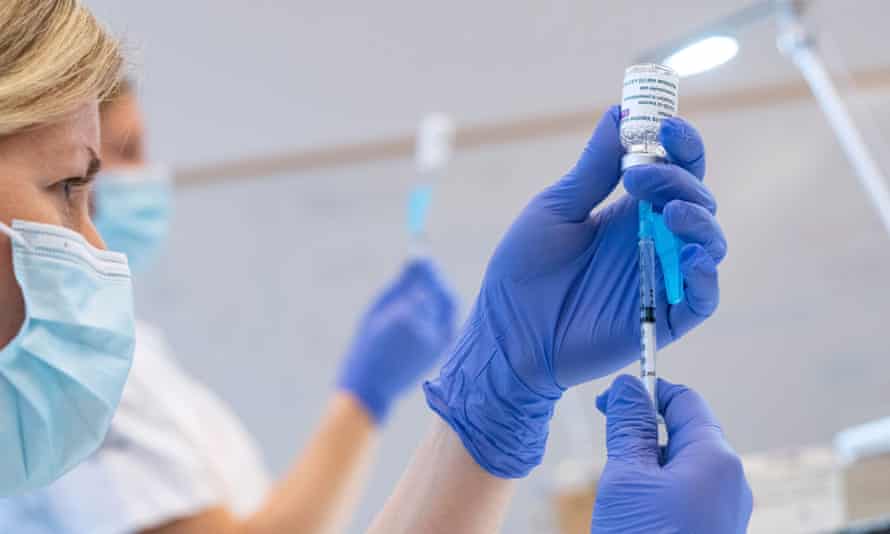Extract from The Guardian
Coronavirus vaccine hesitancy rises ‘worryingly’ as government prepares to start rollout

Last modified on Fri 19 Feb 2021 03.32 AEDT
More than one in five Australians say they will “probably” or “definitely” not be vaccinated against coronavirus, with the spike in vaccine hesitancy potentially spelling trouble for the rollout.
A longitudinal study of almost 4,000 people conducted by the Australian National University found a “significant and substantial” increase in hesitancy since the same people were asked about getting the jab in August 2020.
According to the study, females, Indigenous Australians, those who speak a language other than English at home and those who have not completed year 12 have all become less willing to get the vaccine compared with the rest of the Australian population.
At the individual level, 31.9% of Australians became less willing to get a vaccine between August 2020 and January 2021. Some 9.9% became more willing.
Asked what they will do “when health officials notify the public that a safe and effective Covid-19 vaccine is available”, 8.4% of respondents said they would definitely not get vaccinated in January, up from 5.5% in August.
Some 13.3% said they would “probably not” be vaccinated, up from 7.2% in August. A total of 21.7% would “probably” or “definitely” not get the vaccine.
Those who said they would “probably” get the vaccine increased from 28.7% in August to 34.7% in January, due to a large decline among those that said they would “definitely” get it, from 58.5% to 43.7%.
The ANU Centre for Social Research and Methods study found three groups were “particularly important in explaining the decline in willingness”: Australians who think too much is being made of Covid-19; those who have low confidence in hospitals and the health care system; and those who are not optimistic about the next 12 months.
The proportion of women who said they would “definitely” get the vaccine (39.9%) was lower than the proportion of men (47.4%).
Young Australians, aged 18 to 24, and older Australians, aged 55 and over, have the highest levels of willingness. Only 70.2% of those aged 25 to 34 say they “definitely” or “probably” will get the vaccine.
The study’s co-author, Prof Nicholas Biddle, said “worryingly, as we get closer to administering a vaccine, more Australians have cooled on the idea of getting one”.
“The challenge now is to work out why and how we can address that”.
The study recommended public information campaigns that “remind people of the dangers of Covid-19, but importantly highlight the potential for a much better 2022” if people get vaccinated.
According to Biddle, women, Indigenous Australians, and people who speak languages other than English are “the most urgent focus of any public health campaigns to improve willingness”.
The ANU results are broadly consistent with a federal health department survey finding 64% will get the vaccine, 27% are unsure and 9% will “definitely not” get it.
Despite those results, the government is confident that achieving full approval from the Therapeutic Goods Administration for both vaccines will help support the rollout, and public confidence will improve as vaccines are administered.
Due to low coronavirus case numbers in Australia, the population has little natural immunity and a high vaccination rate will be important to easing restrictions on economic and social life.
The primary aim of the vaccination program is prevention of transmission, serious illness and disease of those who take the vaccine. Although herd immunity is also a goal, experts have warned that variants of Covid-19 and vaccine hesitancy may make it less likely to be achieved.
No comments:
Post a Comment